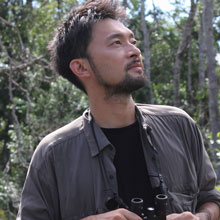
Ikki Matsuda
PWS CoordinatorProfessor, Wildlife Research Center, Kyoto University
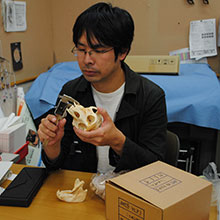
Yuta Shintaku
Program-specific Associate Professor, Wildlife Research Center
Hideki Sugiura
Associate Professor, Wildlife Research Center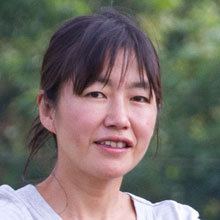
Chie Hashimoto
Assistant Professor, Wildlife Research CenterEnjoy the world of wild chimpanzees
Although chimpanzees are well known as intelligent, political, and sometimes aggressive animals, they are also fascinating animals in terms of tenderness, politeness, and thoughtful behaviors. Mothers are extremely affectionate to their infants, and I am always heeled when I observe mothers and infants spending a calm life in a rich African forest. Our study site, Kalinzu Forest in Uganda, is one of the closest sites to see wild chimpanzees. Please visit us to experience the world of wild chimpanzees.

Satoshi Hirata
Professor, Wildlife Research CenterMichiko Fujisawa
Mayako Fujihara
Program-specific Associate Professor, Wildlife Research Center
Yoko Mitani
Professor, Wildlife Research Center, Kyoto University
Miho Murayama
Professor, Wildlife Research Center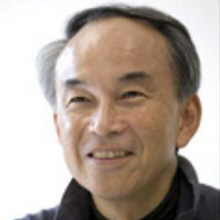
Kiyokazu Agata
Unique educational principle promoted within Kyoto University
When I was a PhD student at Kyoto University, I showed my experimental data to lecturers for feedback. In response to identical data, each one of them gave me completely different comments and suggestions, some in direct opposition. This experience showed me clearly that science is an individual affair; scientific interpretation is often coloured by subjective opinion. Thus, I consider it crucial that students be given the opportunity to learn through their own experiences of discussion with academics with differing perspectives.
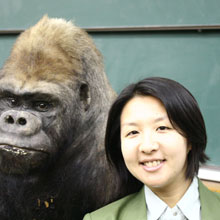
Rie Akami

Ikuma Adachi
Associate Professor, Center for the Evolutionary Origins of Human BehaviorJames Anderson

Hiroo Imai
Professor, Center for the Evolutionary Origins of Human Behavior
Tadatoshi Ogura
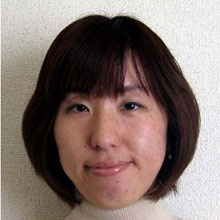
Tomoko Kanamori

Eriko Kawai
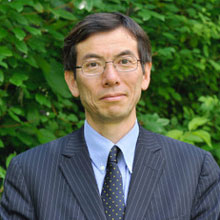
Yoshihiro Kawai
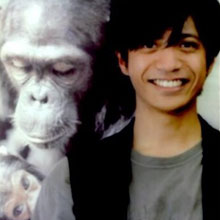
Fumito Kawakami

Takushi Kishida
Nihon University
Kodzue Kinoshita
Associate Professor, Ecology and Environment, Asian and African Area Studies, Kyoto University
Shiro Kohshima
Professor Emeritus, Kyoto University
Aya Saito

Ryota Sakamoto
Associate Professor, Center for Southeast Asian Studies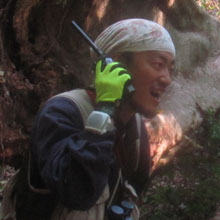
Takafumi Suzumura

Kaoru Sekiyama
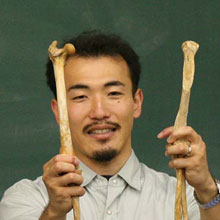
Tomo Takano
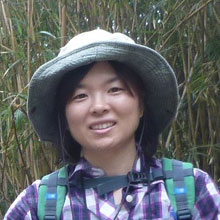
Reiko Takizawa

Masayuki Tanaka
Kyoto City Zoo
Nahoko Tokuyama
Assistant Professor, Wildlife Research Center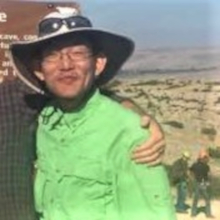
Susumu Tomiya
Program-specific Assistant Professor, Center for International Collaboration and Advanced Studies in Primatology (CICASP), Kyoto UniversityBridging life's past, present, and future
Just as we need to know the human history to properly understand the current world affairs, knowledge of the history of life is essential to understanding the present state of biodiversity. My colleagues and I study fossil and living mammals to investigate how their diversity has been shaped, and how it can be eroded. Answering these big questions requires a lot of basic information about what lived when and where, and how they lived. Thus, efforts to uncover, document, and interpret biodiversity across time and space have never been more imperative. Wherever your research interest lies—genetics, behavior, ecology, or conservation—we all share this obligation as wildlife scientists.

Michio Nakamura
Associate Professor, Graduate School of Science
Mutsumi Nishida
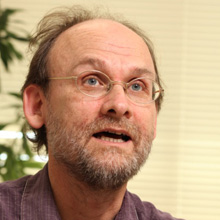
The complex fabric of nature is based on simple stitches.
In nature organism do not live in vacuums, within their ecological and social niche they interact with other animals, plants and pathogens at the macro and micro level. Understanding the complexities of these interactions requires multi-diciplinary research. Join PWS and find your niche, whether it be basic science or conservation, and contribute to deciphering and preserving the mysteries of the animal kingdom.
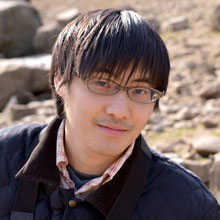
Takashi Hayakawa
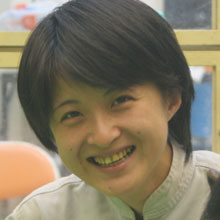
Misato Hayashi
Chubu Gakuin UniversitySpeak up for nonverbal creatures
You can become a friend of chimpanzees, orangutans, and human infants when you continue the research with them. If you carefully observe their behavior, you will better know about their mind. I’m conducting the research on them aiming to become a speaker for them who don’t possess the skill of human language. The studies on their intelligence and its development exhibited in the forms of tool use and social interaction with their mothers and peers in enriched living environments reveal the origin of human beings.

Ning Han
Associate Professor, Kunming University of Science and Technology, ChinaVeni, vide, protega
Julius Caesar's "Veni, vide, vici" was recorded passed down and remembered from 54 BC till now. We human beings seem to remain the most "intelligent" species on this planet as conquerors. We claim and assume we conquer nations, nature and rule our planet. However, comparative cognitive research carried out in Primate Research Institute of Kyoto University provided scientific evidence obtained by scientific experiments that chimpanzees are smarter than human beings in some areas, such as instant memory. The more than 30-year Ai Project not only sheds light on chimp cognition but reveals a fascinating inner world of a female chimpanzee named Ai as well. Also Ai's son, Ayumu, a 12-year-old healthy boy, beat human beings in an instant memory test in both accuracy and swiftness. This reminds us that every species has equal rights to share this unique planet. Our human obligation to the future is to come, to see and to protect. Protect the environment and endangered species. Veni, vide, protega.
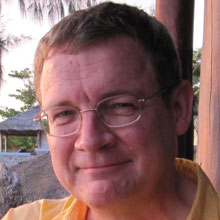
David Hill
Adjunct Professor, Kyoto University (former CICASP Professor 2010-2015)Training a new generation of leaders to tackle environmental challenges
The enormous impact that human activities are having on the natural environment and its predicted long-term consequences for the biosphere has been widely acknowledged by governments, businesses and the general public alike. However, effective action to counter environmental degradation falls far short of what is required to halt, or even slow, the continuing loss of biodiversity and ecosystem services. With the Leading Graduate Program in Primatology and Wildlife Science (PWS) we aim to produce a new generation of leaders who are equipped to tackle these challenges. PWS graduates will be trained in aspects of field biology, conservation and wildlife science, and will be instilled with the knowledge and motivation required to promote the harmonious coexistence of humans and wildlife.
Seiko Fukushima
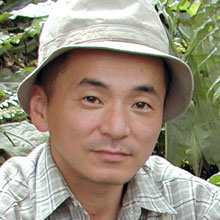
Takeshi Furuichi
Professor, Wildlife Research CenterWelcome for field studies of chimpanzees and bonobos, and conservation of their habitat forest.
My research interest encompases social behavior, life history, and ecology of non-human primates and humans. My research carrior started with Japanese macaques in Shimokita peninsular and on Yakushima Island, and I am currently engaged in field study of bonobos at Wamba in DR Congo and chimpanzees in the Kalinzu Forest, Uganda. I am also working for conservation of habitat forest of primates and other endangered animals, as a member of Species Survival Commission of the International Union for Conservation of Natire.
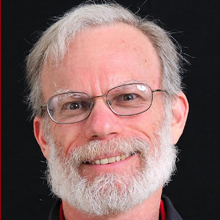
Fred B. Bercovitch
Adjunct Professor, Kyoto University (former CICASP Professor 2010-2017)We are the guardians of Mother Nature
Our existence on the planet has been only an infinitesimal span when compared with the duration of time since the origin of Life on Earth. Yet within that short time period, we have obliterated species, poisoned the atmosphere, scarred the landscape, and polluted our key source of Mother's Milk — fresh water. The Leading Graduate Program in Primatology and Wildlife Science is designed to provide research and education for the next generation of students who want to make a difference. To preserve our precious planet, and promote a more harmonious existence between human beings and our fellow inhabits of the globe, we have created a unique academic program integrating multiple disciplines, such as Conservation Biology, Animal Welfare, Evolutionary Anthropology, Comparative Cognition, Socioecology, Animal Behavior, and Social Outreach. We invite you to join us.

Shigekazu Hoshikawa
Former Kyoto Deputy Mayor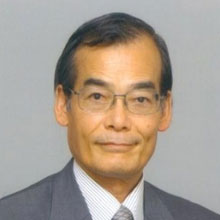
Masahiko Horie
Professor at Meiji UniversityAmbassador for Global Environmental Affairs
Councillor of the International Union for Consevation of Nature (IUCN)
Global environmental issues such as global warming and biodiversity conservation have become crucial for the survival of this globe. We need to arrive at sustainable solutions to these problems. The international negotiations are strenuous and challenging under the UN Framework Convention on Climate Change (UNFCCC), the Convention on Biological Diversity (CBD), etc.
I would like to focus on the most crucial negotiations on climate change and Japanese efforts including her support for developing countries' efforts to cope with all these difficulties. I wish my lecture will provide students with a good opportunity to join these global efforts for the survival of this Mother Earth.
Takako Miyabe
Assistant Professor, Center for the Evolutionary Origins of Human BehaviorMasako Myowa
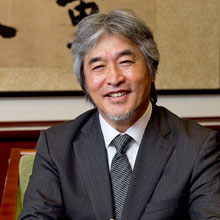
Juichi Yamagiwa
Former President, Kyoto UniversityField work as a window of the world
The phrase "Let the data speak" is the catchphrase of field workers in our graduate school. The graduate students are encouraged to broaden and deepen their interests based on their curiosity about certain phenomena that they encounter in the field. They are directed to collect data by following their intuition and curiosity, and especially first-hand data concerning forms of phenomena that have gone unnoticed. Underlying the emphasis on this approach is a tacit understanding that we should refrain by all means from squeezing the young hopefuls of learning, full of growth potential, into a small number of molds.

Gen Yamakoshi
Professor, Center for African Area Studies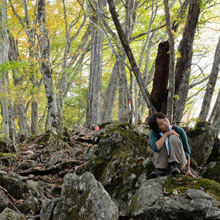
Yumi Yamanashi

Shinya Yamamoto
Associate Professor, Kyoto University Institute for Advanced StudyLira Yu

